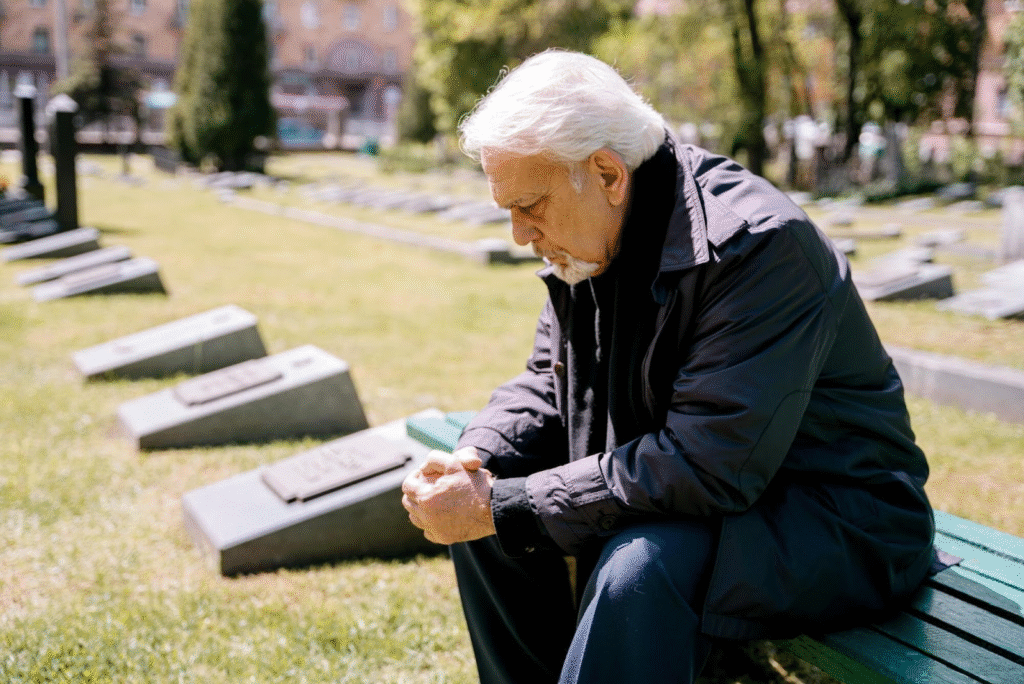
Your Health Magazine
4201 Northview Drive
Suite #102
Bowie, MD 20716
301-805-6805

More Senior Health Articles
Understanding the Emotional Stages of Grief in Seniors

Grief is a natural response to loss, but for seniors, it can feel especially heavy. Many older adults face the passing of a spouse, close friends, or even changes in their own health and independence.
These experiences can stir up deep emotions that are sometimes hard to put into words. By learning about the emotional stages of grief, seniors and their families can better understand what to expect and how to cope.
This knowledge does not remove the pain of loss, but it can provide comfort and guidance through difficult times.
Denial and Disbelief
At first, a senior might struggle to believe the loss is real. They may say things like, “I can’t believe they’re gone.”
This denial serves as a protective shield. It gives the mind time to absorb the shock and soften the blow of reality. In older adults, denial can last longer, especially after a very dear friend or spouse passes.
Anger and Frustration
As reality sets in, many older adults feel anger. It may be directed at themselves, others, or even fate. They might ask, “Why me?” or “Why did this happen?”
Seniors sometimes feel frustrated that their health, memory, or loved ones have failed them. It’s important for caregivers to be patient during this stage and to offer a safe space for expression.
Bargaining and “What-If” Thinking
This stage might look like reflecting on “what-ifs.” A senior may think, “If only I had gone to the doctor sooner…” or “If I had insisted we take that trip…”
Bargaining can include making deals with a higher power or simply wishing things could have gone differently. While this thinking doesn’t change the outcome, it’s a part of processing grief and loss.
Sadness and Depression
Deep sadness is often the longest stage of grief. Seniors may feel lonely, tired, or helpless. They might withdraw from social activities, lose appetite, or sleep more.
In this stage, loved ones and caregivers need to encourage gentle emotional expression. Sometimes, grief triggers memories of past losses, health challenges, or aging itself. Practicing understanding grief stages in aging can lead to more compassionate care and stronger emotional support for seniors.
Acceptance and Adjustment
Acceptance does not mean “everything is okay now.” Rather, it means acknowledging the loss and gradually learning to live with it. For a senior, this might look like finding new routines, reconnecting with old friends, or starting small projects.
At this stage, seniors may discuss the person or thing they lost, sharing stories, laughter, and even tears. This often signals that they are integrating the loss into their life story, rather than trying to deny or avoid it.
Finding Meaning and Legacy
In later life, many older adults seek meaning or a legacy as a way to honor their loss. They might create photo albums, write letters, plant a tree, or support a charitable cause.
This stage can help seniors feel that their grief has led to something positive, and that their loved one or lost capability still lives on in some way.
Helping Seniors Heal Through Grief
Grieving is not a straight line. Seniors may move back and forth between stages, skip some, or feel multiple emotions at once.
Understanding these emotional stages of grief in seniors helps caregivers, families, and friends offer more meaningful support. If you’re helping a senior, or if you’re an older adult facing loss, take time to listen, be present, and encourage small steps of healing.
Liked this article? Check out more in this section for the latest updates!
Other Articles You May Find of Interest...
- Integrative Healthcare For Seniors
- How to Keep Seniors Safe at Home Without
- How To Evaluate a Nursing Home’s Safety and Care Standards
- Integrative Healthcare For Seniors
- What Families in Houston Realize About In Home Care
- Supporting Senior Health Without Taking Over: Finding the Balance
- Home Health Care vs. Assisted Living: Understanding the Differences and Choosing the Right Care Option














